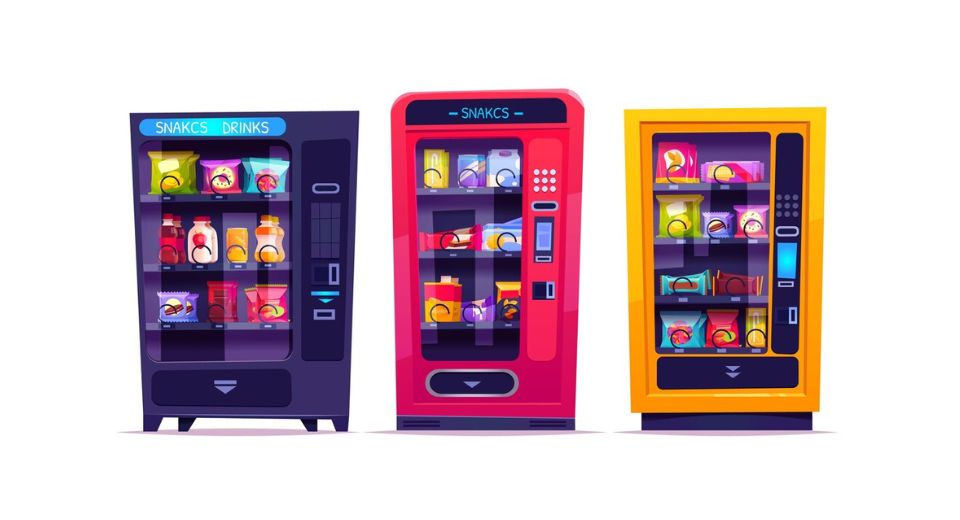
Jan 02, 2025

As highlighted by Metastat Insight, the study of the vending machine market on a global scale is one that shows a sector which still continues to attract business interests and consumer behaviors. Vending machines, usually seen as mere fixtures in public spaces, have gradually evolved to become integral components of modern commerce. From instant snacks and drinks to the dispensing of high-tech devices and toiletries, automated machines are rapidly becoming a necessity commodity in fast-moving lives. The market has been extremely adaptive and responsive, embracing technology and shifting consumer expectations.
Vending machines have successfully undergone changes from the simple coin-operated unit to the most recent systems that can accept digital payment modes and dispense customized products and services. New changes in these vending machines have brought touch-screen interfaces, mobile connectivity, and highly advanced inventory management systems. All these also display how digital transformation is getting stronger in the sectors, and this vending machine sector is not exempted from that. The advances do not only make users happy but also advance the operations of the business, which makes vending solutions more efficient and profitable.
The adaptability of vending machines can also be viewed in the form of an expanded list of products. While earlier, it used to just serve a snack and some sodas, the vending machines today are dealing with a host of consumer's needs. Now, they dish out fresh food and organic fruit and vegetables along with personal protective gear and high technology electronics. This helped the vending machine industry to seek a broader marketplace and thus give rise to potential opportunities in each region of the world. Addressing localized preference, vendors now have managed to penetrate markets labeled unsuitable to automated retailing solutions.
Consumer convenience remains the core of the success of the vending machine industry. That is very practical since they can deliver goods 24/7 to locations as diverse as offices and schools, transportation hubs, and even remote areas. In an urban setting, vending machines give the busy consumer quick, reliable access to goods; in underserved or rural areas, they bridge a gap to much-needed products. This duality makes them valuable for serving varied consumer needs.
The role of technology in the development of the global vending machine market cannot be overstated. Contactless payments, artificial intelligence, and cloud-based monitoring systems have both improved user engagement and operational efficiency. Contactless payment options, for instance, have become a critical aspect in today's increasingly cashless societies. Meanwhile, AI-powered machines offer personalized recommendations based on purchasing patterns, enhancing the customer experience. Simultaneously, cloud-based systems allow operators to monitor inventory levels in real-time, thus reducing downtime and optimizing restocking schedules.
Sustainability is also a crucial dimension in the vending machine industry. Increased concerns for the environment cause the manufacturers and the operators to pay more attention and integrate more environmentally friendly designs and operations in vending machines. There is increasing acceptability for the more frequent vending machines, those using energy-saving technologies, biodegradable packages, and those that facilitate recycling. All of these fit with the broader world objectives of being sustainable and better resonate with environmentally conscious consumers that increasingly are leading vending solutions within different markets.
Along with the technological and environmental considerations, regional factors really help to shape the global vending machine market. High penetration rates are seen in developed economies such as the United States, Japan, and European nations, while a huge growth potential exists in emerging markets in Asia-Pacific, Latin America, and Africa. General factors such as urbanization, rising disposable incomes, and lifestyle preferences lead to increased demand in these regions. Through customization of products and strategies according to specific cultural and economic contexts, businesses can tap into new opportunities and further deepen their global presence.
Despite the progress it has made, the vending machine industry still faces several challenges. It is faced with regulatory frameworks, cost of operations, and the need to be innovative all the time; therefore, it must be agile. Agility requires proactive responses to long-term growth and sustainability. However, the intrinsic flexibility and innovative capacity of this market make it well-placed to deal with these challenges.
The Metastat Insight on the global vending machine landscape gives insights into a sector that is going to continue growing and transforming. Combining technological innovation, environmental awareness, and a focus on consumer convenience, the industry represents the best of modern commerce's ability to evolve and thrive. As vending machines become more and more ingrained in daily life, their influence will undoubtedly shape retail experiences across the globe for years to come.
Drop us an email at:
Call us on:
+1 214 613 5758
+91 73850 57479